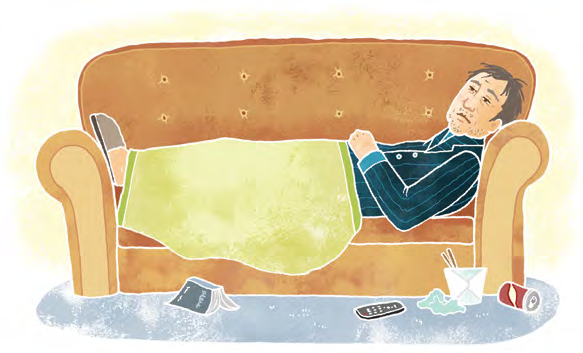Mental health
People with HIV have higher rates of mental health conditions than the general population.
Stigma, isolation, trauma and the loss of friends and family members can all contribute to this. Depression is one of the most common mental health conditions, and is seen in people with HIV of all ages. Early symptoms of depression may include low mood, a loss of interest in things that were previously enjoyable, difficulties with concentration, unexpected tiredness or lack of energy, problems falling asleep or staying asleep, or waking up and not feeling refreshed.

Possible physical causes of depression include:
- low testosterone
- low level of vitamin B12
- low thyroid levels
- hormonal changes that can be related to premenstrual syndrome (PMS), pregnancy, giving birth, or menopause
HIV itself can also contribute to depression, and some treatments can cause these side effects. The HIV drug efavirenz (Sustiva, also in Atripla) can cause mental health conditions, and a very small proportion of people who take integrase inhibitors such as raltegravir (Isentress), elvitegravir (in Genvoya and Stribild), dolutegravir (Tivicay, also in Juluca, Dovato and Triumeq) and bictegravir (in Biktarvy) may experience anxiety, sleeping problems and depression. Symptoms of anxiety can include a rapid heart rate, insomnia (sleeping problems) and extreme worry.
Depression and anxiety are relatively common among people with HIV, even among people who are not taking these HIV drugs or who are not on treatment at all. If you are experiencing any of these symptoms, it’s very important to see your healthcare provider and get treatment and support.
Dementia
Dementia is a brain disorder that can affect memory and the ability to think clearly. It can have a serious impact on your daily activities, your quality of life and even your ability to live independently. Fortunately, the HIV-associated dementia that was seen in the early days of the epidemic greatly declined after effective HIV treatments became available. Nevertheless, as you age, you may be at risk of developing what is now called HIV-Associated Neurocognitive Disorder (HAND). This is a spectrum of cognitive, motor and mood problems that can affect older people living with HIV. Symptoms include difficulty remembering, concentrating, performing calculations or completing basic tasks, but most people with HAND have very mild impairment. It’s important to speak to your healthcare provider as soon as possible if you notice any of these symptoms.
